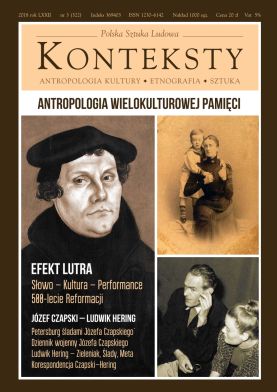Reformacja to nie retusz, ale nowa forma społeczna
The Reformation is Not a Retouch, but a New Social Form
Author(s): Marek UglorzSubject(s): History, Theology and Religion
Published by: Instytut Sztuki Polskiej Akademii Nauk
Keywords: Reformation;Protestantism
Summary/Abstract: The Reformation was not a great or small evil. It also did not consist of setting the old order right but was the crowing of a centuries-long religious-social process, which created an entirely new social form. We repair something that is broken but which may still serve some sort of purpose. After being mended that particular reality continues to serve in its old form. A reformation is an entirely different activity. It repairs only indirectly and, first and foremost, grants society a new form. A reformation is needed in those cases when the old order can no longer be mended because it has developed into a cul de sac. Repair is based on the old form. The Reformation is a word-event that interprets the world anew and creates a new order. The Reformation was, is, and shall be a significant element of a religious-social process initiated by the Call of Abram, later the patriarch Abraham, whose spirit and idea were fulfilled by Jesus of Galilee. It is to this historical process that we owe man’s autonomy, emancipation, equal rights, and secularisation, conceived as a reversal from the sacrum of time and space towards the sacral nature of daily existence as man and interpersonal relations. This is the reason why the Reformation is not a completed process. It must go on although it will probably assume new shapes and be granted new names. Among the most characteristic outcomes of the Reformation is schooling and widely comprehended education. Evangelical Churches grant them supreme rank in order to render man free from prejudice and capable of being responsible for himself and his neighbour. Protestants are concerned with attaining a civic and creative society that does not expect but creates; does not react but acts; and is concerned with man being capable of making decisions independently not only within the sphere of the economy and politics but also of ethics, a man who does not have to be steered and does not hide behind the screen of Church authority or puts on the corset of the law.
Journal: Konteksty
- Issue Year: 322/2018
- Issue No: 3
- Page Range: 31-35
- Page Count: 5
- Language: Polish
- Content File-PDF

